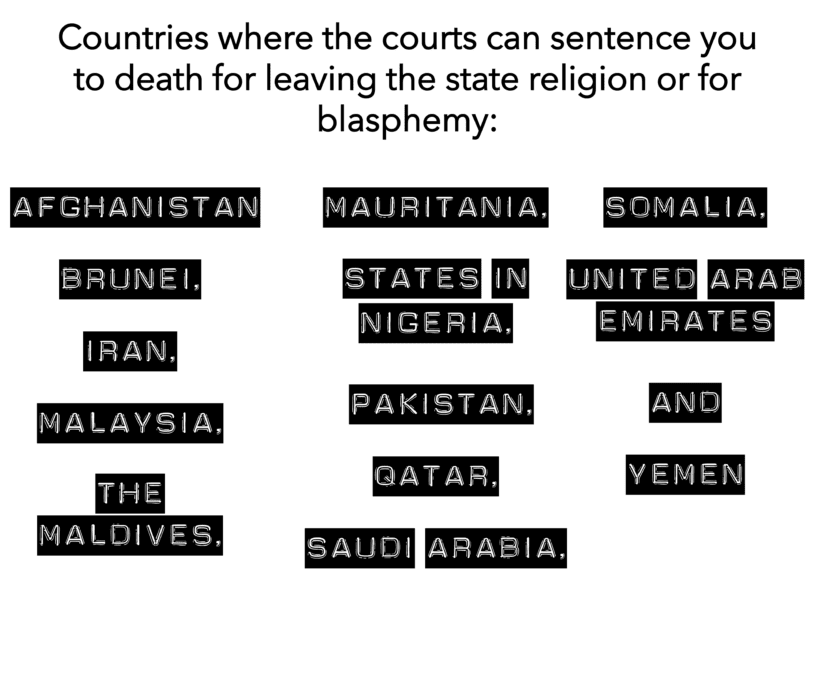This World Day Against Death Penalty The International Community must take immediate steps to ensure states repeal laws which mandate the death penalty for apostasy or blasphemy
As the World Day Against Death Penalty approaches over 10 countries still have the death penalty for apostasy or blasphemy.
Sixteen organisations, from different faiths and none, have submitted a letter to all UN member states urging them to take immediate steps to address this and to protect fundamental freedoms, including religious freedom, freedom of expression, and the right to adopt, leave or change their religion or belief.
In the Islamic Republic of Afghanistan, Brunei Darussalam, Islamic Republic of Iran, Malaysia, the Republic of Maldives, the Islamic Republic of Mauritania, several states in the Federal Republic of Nigeria, the Islamic Republic of Pakistan, the State of Qatar, the Kingdom of Saudi Arabia, the Federal Republic of Somalia, United Arab Emirates, and the Republic of Yemen[1] the courts can sentence an individual to death if they leave the state religion or express a dissenting opinion about the religion.
The death penalty, even when not applied, is used to pressure individuals to recant and to not practice publicly. One ex-Muslim described the laws as being a constant, “sword over our throats.” The UN Secretary General has noted this concern saying that even where a moratorium is in place the laws have, “a chilling effect on the legitimate exercise of human rights.”[2]
The death penalty for apostasy and blasphemy has also been shown to incite violence by non-state actors against those who leave or question the religion. The UN Special Rapporteur on freedom of religion or belief has said, “where domestic laws provide for the death penalty for religious offence, it is more likely that the existence of such laws will encourage vigilante mobs or zealots to murder those alleged to have violated those laws.” The most recent example was in July 2020, when a man shot dead Tahir Ahmed Naseem, who was on trial for blasphemy in Pakistan.
The hope is that this effort will increase the pressure on countries to repeal their laws on the death penalty for apostasy and blasphemy following Sudan’s repeal this year, and further expedite countries’ full compliance with international human rights standards including the freedom of expression, and the right to adopt, leave or change religion or belief.
[1] Global Legal Research Directorate Staff; Goitom, Hanibal. Laws Criminalizing Apostasy, 1 June 2014, www.loc.gov/law/help/apostasy/index.php. Some regions in Northern Nigeria also have the death penalty for apostasy and blasphemy.
[2] UN Human Rights Council, Annual report of the United Nations High Commissioner for Human Rights and reports of the Office of the High Commissioner and the Secretary-General, Capital punishment and the implementation of the safeguards guaranteeing protection of the rights of those facing the death penalty, A/HRC/42/28 (28 August 2019), available from undocs.org/en/A/HRC/42/28.







